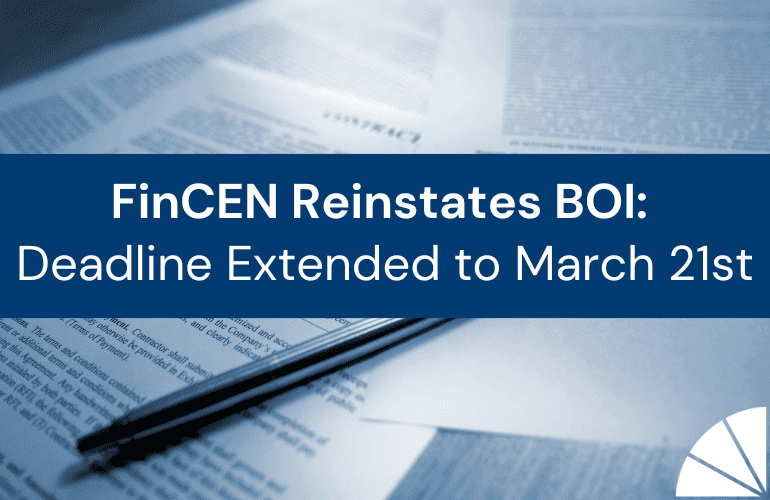
With week 18 of the NFL behind us, millions of people will be tuning in for the wild card and divisional rounds and anxiously awaiting the championship and bowl games to come. As a business owner in New England, your passion for succession planning may not run as deep as your passion for watching the Patriots play. Still, you may be surprised to learn how similar succession planning and football are in nature. After all, even Coach Belichick will tell you that, even though football is a sport, it is still a business.
In Part II of LGA’s Best Practices Series, I’m talking with business owners about succession planning best practices, with a specific focus on concerns related to the key members of their company’s finance and executive teams. And if you missed it, check out Part I of the Best Practices Series: Standard Operating Procedures & Adapting to New Environments.
Succession planning is both an offensive and defensive maneuver.
Succession planning serves several essential functions. One of the most critical is ensuring there is no leadership vacuum after owners and key employees retire, resign, or otherwise exit an organization. Succession planning should be a part of both your offensive and defensive lineup. Where would a team be without a head coach or assistant coaches, and what happens if its star quarterback can’t play? The team would be similar to a business operating without a CFO or other key members of its finance and executive teams.
Your employees need a safe working space, standardized guidelines, and a healthy, supportive company culture to thrive at work. Business owners need to ensure their company has formally documented, up-to-date, written policies and procedures that align the company’s operations with its mission and values. Even the Patriots abide by their own cultural standards, known as “The Patriot Way,” which supports winning at football and at life – as part of a team and as individuals. Taking these steps can help your offense and defense by allowing you to attract and retain top talent while maintaining a positive and healthy culture and morale.
Recruiting and retention: How you draft the best talent, keep a successful team, and bolster your sideline.
Whether your business is growing or planning for expected future changes or to mitigate unexpected losses, you should always keep recruiting front and center. If you’re seeking talent all the time, you’ll have a strong bench, which not only helps you prepare for the unexpected but also may lead you to unexpected growth and improvement opportunities. You may find potential candidates or make valuable additions at all employment levels, including additions to your company’s finance and executive teams.
Providing employee retention incentives and benefits, such as career paths with achievable upward mobility, retirement accounts, stock options, non-qualified deferred compensation, or current or deferred cash bonuses, goes a long way in attracting and retaining your key employees. Comprehensive contingency plans and well-established succession plans help you instill your key employees’ confidence in you as an employee-centered, trustworthy employer. Establishing well-laid plans enables you to acknowledge employee loyalty and provide reassurances regarding their role with the company and their position’s short- and long-term stability before, during, and after the transition.
If you’re looking to sell your business, you’re likely to garner more attention from potential fans (buyers) if your key employees present a strong, united front.
The harmony of many significant aspects of your business, from day-to-day operations and finances to employee morale and customer relationships, depends on how your key employees’ duties and responsibilities are fulfilled. If the key members of their finance and executive teams are happy, they are more likely to improve their productivity, efficiency, and loyalty, increase their tenure, and, ultimately, increase the business’s bottom line and transferable value.
Buying a new business can feel like arriving late to an away game. But, with an experienced team in place, a buyer can get back some of that home-game advantage. Potential buyers know that knowledgeable, loyal, dependable, hard-working employees are not a dime-a-dozen; in actuality, they can be challenging to find. A strong team of key employees can lead to increased interest in your business, more bids, and even a higher sale price than you initially expected, so never underestimate the value of key players. If your circumstances permit, ensure your key players’ hearts are still in the game.
Avoid a fumble during a handoff – include succession planning in your management “huddles.”
Much the way it is in football, situational awareness is vital in business. During a game, coaches and team members communicate in real-time to update their plays as the layout shifts on the field. Business owners need to do the same, whether in response to a change that affects a key role or member on their finance or executive team, whether it has already happened, may happen, or is soon to happen.
Keeping an open dialogue can help you ensure your next play is the right move for your entire team, and it can help your team members prepare for a transition. These discussions could signal the need for an employee to begin preparing training materials or making scheduling adjustments to accommodate a new hire who will be shadowing their role.
Depending on your company’s specific situation, you may only need to address succession planning as part of your scheduled management meetings, schedule periodic meetings, or prepare your team for ad hoc huddles, as needed. Regardless of meeting frequency, it’s best practice to include your professional advisors in the mix.
Contact LGA
LGA’s business advisory, tax, & valuation specialists work with business owners to develop, implement, and execute the succession plan that best meets their financial, personal, and business needs and goals. My goal is to help clients optimize their succession planning efforts by providing financial planning, risk assessment, business advisory, and tax planning services that make sense for you. If you’re ready to talk strategy, contact me today!
by Jim DeCesar, CPA
 Jim is a principal with LGA. He works with businesses of all sizes to diagnose issues, establish processes, address risks, and achieve their financial goals. Jim’s public accounting and private industry experience allow him to provide clients with services ranging from financial and operational risk assessment, internal controls and process mapping, financial planning and analysis, tax analysis, and business strategy.
Jim is a principal with LGA. He works with businesses of all sizes to diagnose issues, establish processes, address risks, and achieve their financial goals. Jim’s public accounting and private industry experience allow him to provide clients with services ranging from financial and operational risk assessment, internal controls and process mapping, financial planning and analysis, tax analysis, and business strategy.





